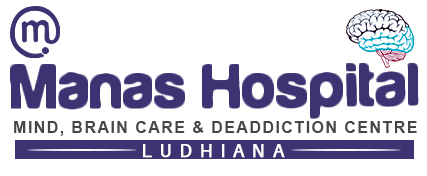
Do you want to seek help from Psychologist in de-addiction, get information about his role?
Drug and alcohol habits, gambling addictions, and other lifestyle conditions are established by medical counselors as a help network for people suffering from eating disorders. By developing a trust-built partnership with their patients, Psychologist in Ludhiana offer the help, services and judgment-free feedback patients may utilize in their attempts to overcome their addiction.
Build a Patient Clinical Relationship
The choice to get alcohol addiction treatment is not straightforward and requires a lot of trust between patients and their advisors. Consequently, clinicians can maintain a positive partnership with families, defined as a relational collaboration. The clinical Relationship helps trust patients to feel confident and to function successfully along with their counselors. Good relationships such as these ensure that patients consider their physicians as trustworthy and that their best interests remain at the forefront. This helps advisors and patients also in tribulation to function together.
Although this confidence requires some time to grow, patients can feel relaxed communicating comfortably during appointments and feel confident during a visit.
There may be good clinical relationships
-
Make sure patients realize that you value their wellness.
-
Look out for sessions.
-
When you let patients think you can hear the issues.
-
Comprehension and coordination of the basic issues of recovery.
Promote healing for patients
It’s tough to come back from addiction because often people with alcohol or drug addiction refuse to acknowledge their own habits of violence or ambivalence. The willingness of the patient to improve has also become a source of concern when addressing drug addiction, as clinicians have no influence on a patient’s ability to change.
Through motivating the psychologist to inspire, motivate, and develop a method that better suits the desires of the individual, the therapy culture repenses traditional strategies to encourage.
Support Patients Build a Treatment Strategy
The persistent aspect of the addiction guarantees the reappearance of a significant amount of those afflicted. Some reports indicate that about 40-60 percent of users relapse from asthma, diabetes, hypertension, etc. But recurrence does not mean that therapies have failed, but rather it is a sign of the need to change the medications to better benefit the individual.
This is essential when patients are well prepared after a choice has been taken to pursue medication for addiction, and prevent recurrence in the future. Preventing relapse takes more than just a desire to tell ‘no.’
Plans should be customized to each patient’s requirements, but the main elements include:
-
A clear history of the patient’s drug addiction past, including prior repetitions.
-
Warning signs and how to better treat patients.
-
A complete list of relatives, colleagues, and advisors who can act as a support service
-
Changes in behavior due to the patients’ well-being






